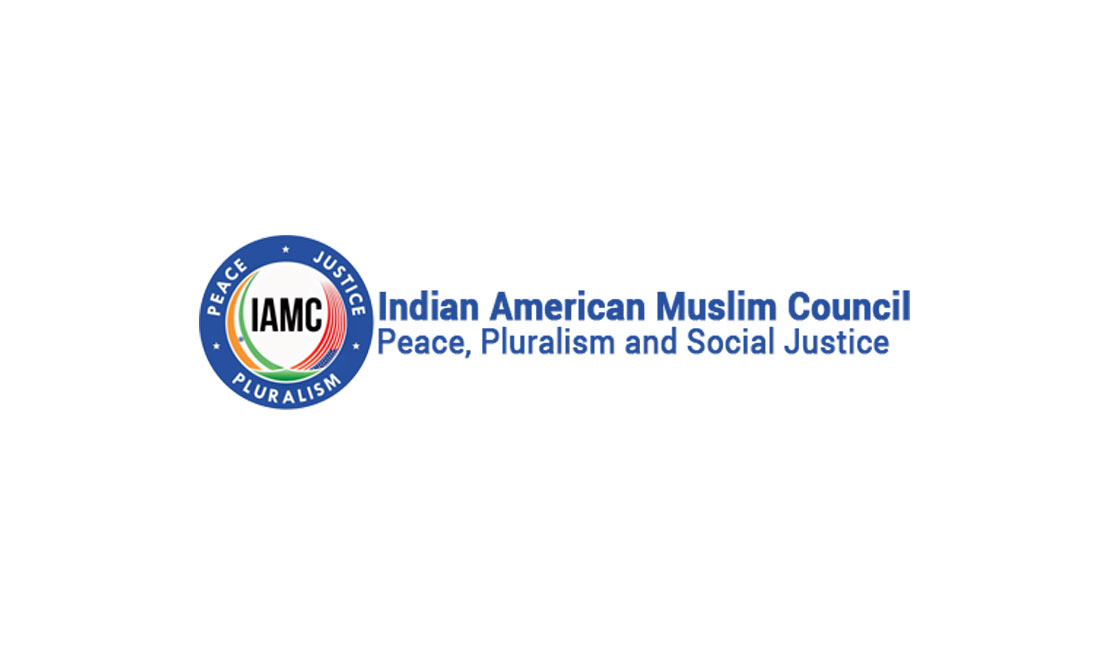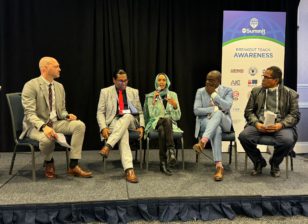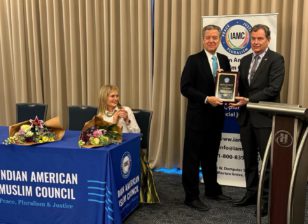IMC-USA demands Indian government to revise the proposed Communal Violence Bill 2009
Dear Prime Minister Manmohan Singh,
I am very disappointed at the current version of the Communal Violence Bill, 2009. I urge you to assure the following recommendations in the final bill.
The recommendations and the rationale behind these recommendations are very well explained below. The focus must be on prevention as much as rehabilitation after the fact.
I am confident in your leadership and the final bill will be something UPA and congress will be proud of and it will become another Indian example of global leadership.
Thank you,
Sincerely,
Rasheed Ahmed
National President
Indian Muslim Council-USA
NON-RESIDENT INDIANS CONSULTATION ON
The Communal Violence (Prevention, Control & Rehabilitation of Victims) Bill, 2009
February 24, 2010, United States
The demand for a law on communal violence emerged from a brutal record of recurring violence in our country, the increasing occurrence of gender-based crimes in communal conflagrations, and complete impunity for mass crimes. The reasons are many – lack of political will to prosecute perpetrators, State complicity in communal crimes, lack of impartial investigation, and lack of sensitivity to victim’s experiences. But there is also, crucially, the glaring inadequacy of the law. Today, despite huge strides in international jurisprudence, India continues to lack an adequate domestic legal framework, which would allow survivors of communal violence to seek and to secure justice.
The UPA Government’s Common Minimum Programme in 2004 had promised to give the citizens of this country a ‘comprehensive legislation’ to fill this legal vacuum. We were promised a legislation that would strengthen the hands of the citizens in the struggle against communalism. However, The Communal Violence (Prevention, Control & Rehabilitation of Victims) Bill 2005, introduced in the Rajya Sabha in December 5, 2005, was a complete betrayal of that promise. The 2005 Bill was roundly criticized and rejected by civil society at all levels. Eminent jurists, legal experts, activists who worked with survivors, and all prominent minority groups rejected the Bill and urged the Government to make serious changes in it. The Bill was sent to the Parliamentary Standing Committee on Home Affairs for its review and recommendations. But the Standing Committee report, when it was finally tabled in Parliament in December 2006, suggested no significant changes.
Between 2005 and now, civil society groups have repeatedly engaged with the government at all levels and time and again communicated our serious objections to this Bill. We have written critiques, given alternative formulations, written alternative draft laws, and suggested changes in several specific Chapters and clauses. Civil society groups have met everyone over the last 4 years – from the Chairperson of the UPA, Prime Minister, two successive Home Ministers, officials in the Home Ministry, to members of parliament. And yet the Government appears unwilling to listen.
The UPA government has now introduced an impressive-sounding 59 amendments into the Communal Violence Bill 2009. These have been cleared by Cabinet, and we have been told that the government plans to introduce it in Parliament in the coming session. These 59 amendments have merely tinkered with the Bill. They do not make any structural changes and do not incorporate a single suggestion made by civil society.
This Communal Violence Bill 2009, if passed, will not only be weak, it will be dangerous. It will not only fail to secure justice for communal crimes, but will actually strengthen the shield of protection enjoyed by those who plan and sponsor these crimes. Further, it continues to perpetuate the silence around gender-based sexual crimes.
This Bill is of fundamental importance in addressing the challenges posed to the secular character of our society and in protecting all our citizens. At this National Consultation on the Communal Violence (Prevention, Control & Rehabilitation of Victims) Bill 2009, we the undersigned, once again urge the UPA government to revise the Bill taking on board the following concerns, which have been articulated through wide national consultation:
1. Statement of Objects & Reasons: The objective of the Bill should be to ensure that the State governments and the Central government take measures to provide for the prevention and control of communal violence, which threatens the physical, social, economic, cultural, political and human security of the citizens.
2. Communal violence must be defined as: Any targeted attack committed on the persons and properties of individuals or a group of persons on the basis of their religious identity, which can be inferred directly or from the nature or circumstances of the attack.
3. Scheduled Offences: Situations of communal violence have shown that the range of offences committed is not restricted to the offences enumerated under the IPC and related penal statutes.The Bill must define crimes/ offences, and new rules of procedure and evidence to adequately and appropriately reflect the realities of the crimes experienced by victims and survivors of communal violence.
4. Declaration of Communally Disturbed Areas – The basic scheme of the Bill which envisages the declaration of certain areas as communally disturbed areas, and gives greater powers to the state in these areas, runs entirely counter to the purpose of the proposed law. Chapter II of the Bill must be removed. The state already has sufficient power vested in it by law. However, experience during communal violence is the non-exercise or non-judicious exercise of this power.
5. Sexual violence in situations of communal violence, unlike those in non-communal contexts, is often committed with malicious intent of intimidating, humiliating and degrading the dignity of the victim community using the bodies of women. Inclusion of a wide ranging crimes of sexual violence, in addition to rape, therefore assume great importance in a bill to prevent and punish those responsible for communal violence. We therefore call for the inclusion of sexual crimes into this Bill.
6. Reparations: The Bill must include the concept of reparations as an inviolable, legally enforceable right of the victim-survivor, and according to objective norms and scales that are binding on all governments. The law must specify criteria for identifying who is a victim/survivor and standards which will be applicable to all victims and survivors of communal violence, and not leave it to discretion at the state level.
7. Victim’s Rights – the Bill must recognize comprehensive rights of victims and survivors. They must be provided a right to have information of the proceeding at all stages of the proceedings including copies of FIRs and other legal documents, right to participate and be heard at all stages of the trial, right to legal representation of their choice at state costs and right to appeal in the event the state does not do it on their behalf.
8. Command/superior responsibility implies that persons in positions of official power (civil or military) or senior/high officials of non-state structures and organizations, by reason of their position, have effective control and knowledge or ought to have knowledge of the acts or omissions of their subordinates that causes the violence. This doctrine must be incorporated into the Bill.
9. Prior sanction: The present Bill requires sanction from the State government in order to even initiate prosecution against any officer for acts of omission or commission. This defeats the purpose of the proposed law and perpetuates impunity. Instead of the requirement of prior sanction, this should be a matter for judicial determination at the commencement of the trial.




